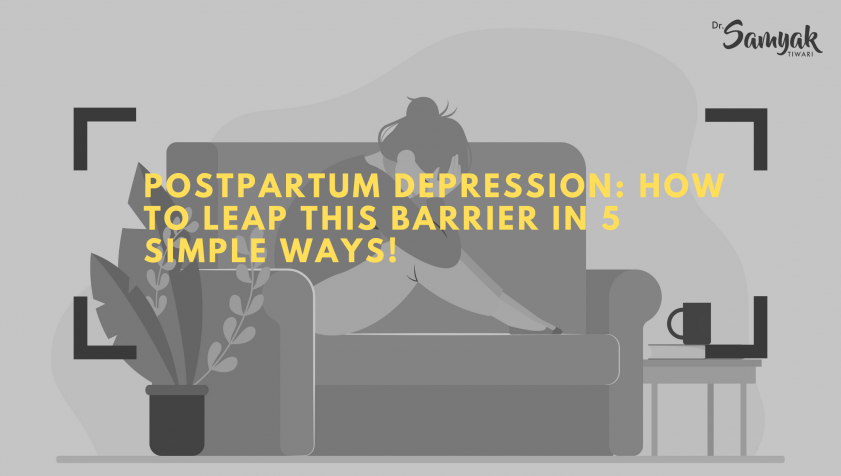Postpartum depression is a malady for millions of women every year. About 70 percent of women experience some form of this depression post-childbirth. In the first few days, some may experience weepiness, anxiety, distress, pain, etc.; but these are just “baby blues” and can leave you feeling fidgety, tearful, exhausted, dispirited, doomed, and deserted.
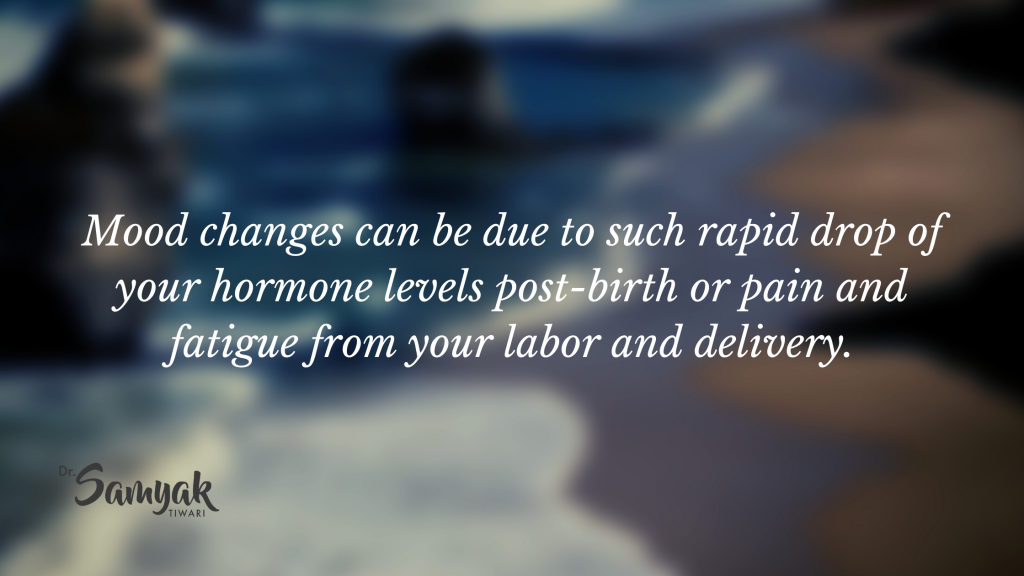
You may experience a roller coaster of emotions and sudden mood swings with extremes, from feeling joyful, talkative, and energetic to being all gloomy and irritable. These mood changes can be due to such rapid drop of your hormone levels post-birth or pain and fatigue from your labor and delivery. They can also root from watching over your baby for hours and hours without getting proper sleep.
So what are the Notable Symptoms?
The majority of the time these baby blues are momentary, vanishing in a week or two. Nevertheless, some women will indulge in a more critical condition called postpartum depression. Postpartum symptoms often include:-
- Feelings of agitation, unease, sadness, lethargy, insomnia, and weight fluctuations.
- In rare cases, new mothers may experience postpartum psychosis (refusal to eat, paranoia, and irrational thoughts)
- Being apathetic towards your baby.
- Feeling awful all the time.
- Anger issues and crankiness.
- Feelings of unimportance, bleakness, and feebleness.
- Suicidal thoughts.
- Trouble focusing or making decisions.
- Panic attack
How to cope up with Postpartum symptoms?
Even though postpartum depression is common, it can be effectively cured with medicine and therapy. Postpartum depression is curable and should be dealt with as early as possible, psychological support and counseling with proper medication can minimize the severity.
POSTPARTUM DEPRESSION CURE
The most operative way to detect and treat postpartum depression is by seeing your doctor. They can gauge your symptoms and formulate the best treatment for you. You can benefit through psychotherapy, antidepressants, or a combination of both.
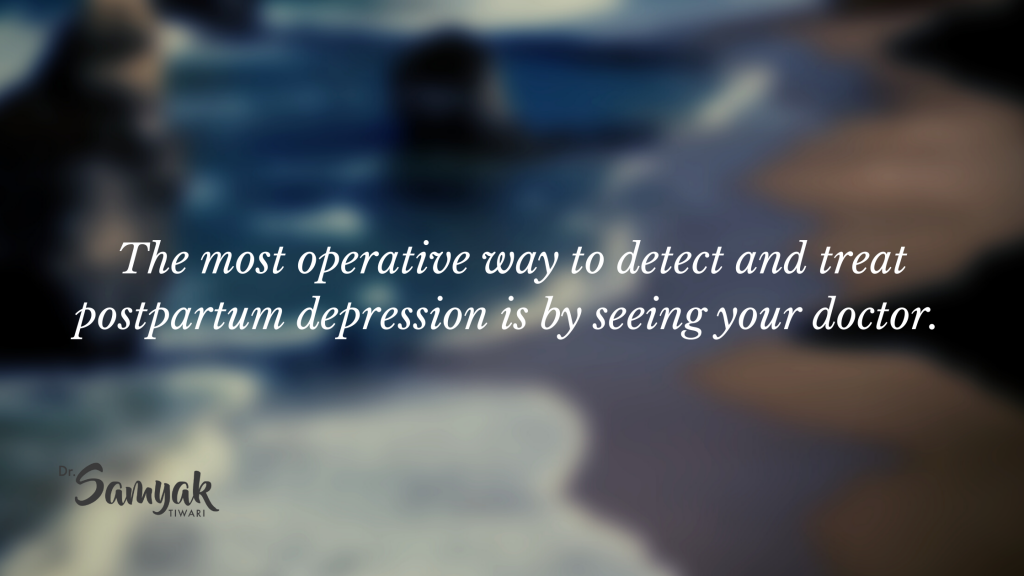
Besides this, there are things you can do at home to cope up with everyday life. Keep hooked further to read how and what you can do on your own to feel better:
EXERCISE!
Yes, exercise to mankind is a boon it is proven to help fight many physical and mental disorders. In the case of postpartum depression researchers explain that exercise can release antidepressant effects on women with postpartum depression. It works like a miracle in shedding down all that agony and negativity.
Not only this, it helps release the mental pain and lighten your body, also it is a great distraction! Get in the fresh air, walk for few miles, or do any physical activity in consultation with your doctor and you are ready to let go of all the stress.
Healthy Diet Is A Must!
Pregnancy and delivery already bring a lot of toil on the body, so replenishing the lost nutrition is important especially for feeding mothers. Also, your diet affects your mood greatly so make sure to eat fresh and healthy both for yourself and for the baby.
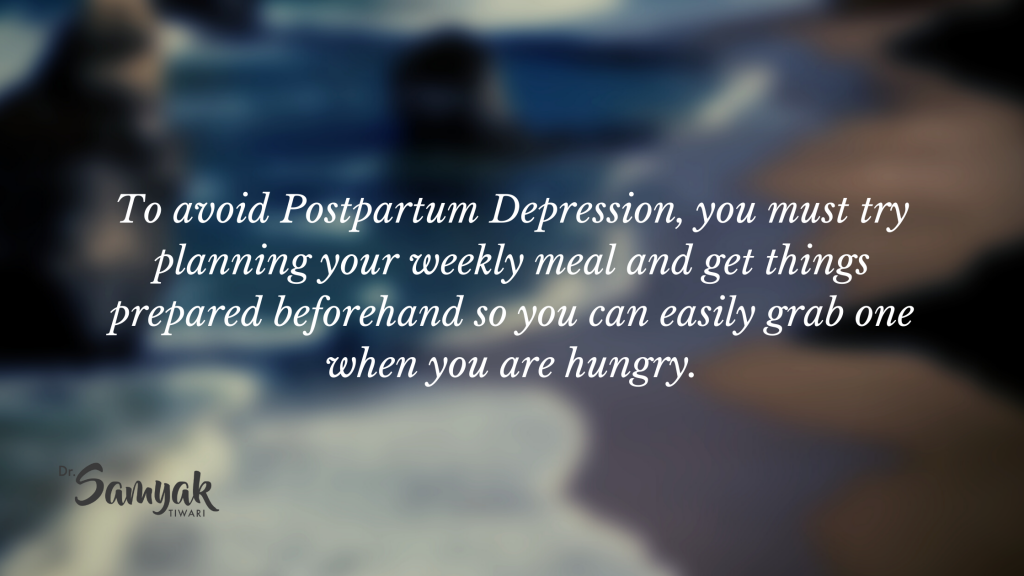
To avoid Postpartum Depression, you must try planning your weekly meal and get things prepared beforehand so you can easily grab one when you are hungry. Keep nuts, fruits, and salads always handy and replace them with instant package food.
Book an appointment with yourself
Self-love is important. Bringing a baby into the world and taking care of his/her makes you lose yourself, you forget what it was like being in your own company and doing things you loved.
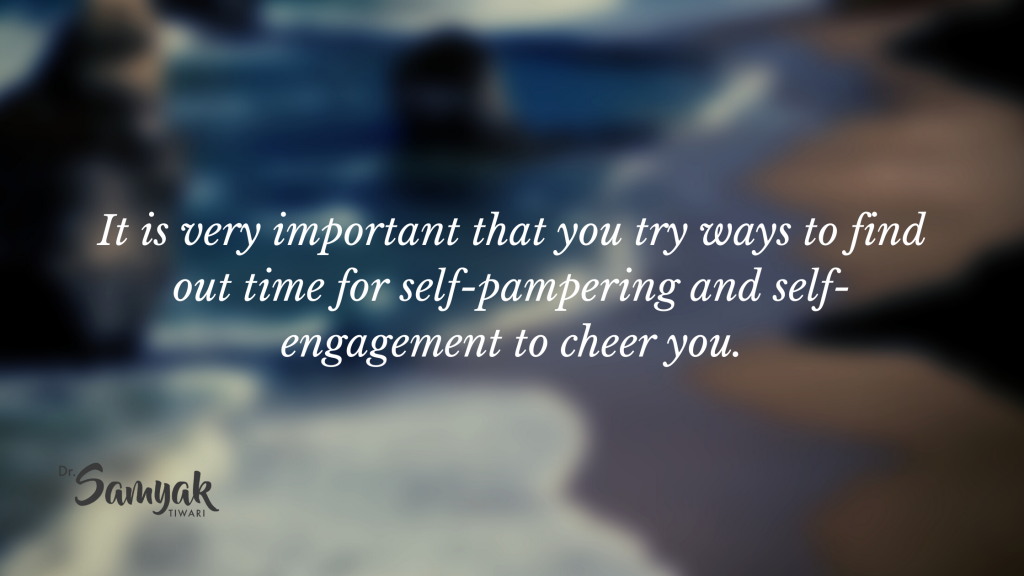
Hence, it is very important that you try ways to find out time for self-pampering and self-engagement to cheer you. It can be as simple as watching Netflix while laying on a couch eating popcorns, whatsoever it may be just do it!
You sleep when the baby sleeps
It is as simple as it sounds, its an age-old advice and is rooted in science. Absence sleep post-pregnancy are more prone to postpartum depression, so sleep when your baby does. In case you are breastfeeding, consider pumping a bottle so that your partner can at times take upkeep an overnight feeding.
DON’T ISOLATE!
A common mistake we are likely to make as a new mother is isolating ourselves from people and our usual life. We get so engrossed in taking care of the baby that we almost forgot that there exists a world beyond it also, this worsens our condition more. Becoming a mother is a blessing, not a duty so don’t make it one. Meet people be around family, go out have a social life.
When to see a doctor?
Even though a lot of women experience the baby blues in the very first days following delivery, postpartum depression is manifested by deeper and longer-lasting emotions of sadness and agitation. This can get worse and become chronic depression if one does not seek medical help.
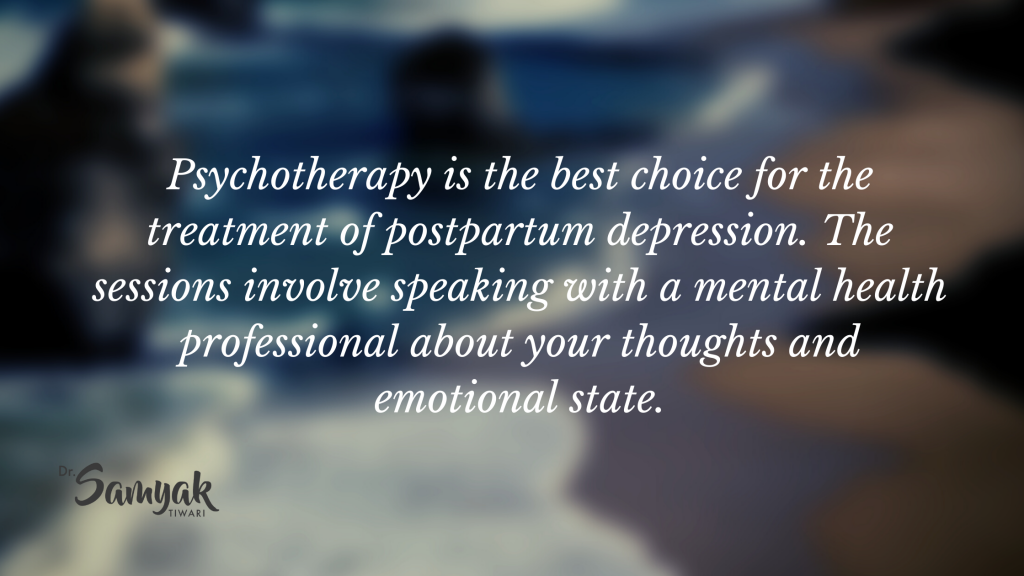
Psychotherapy is the best choice for the treatment of postpartum depression. The sessions involve speaking with a mental health professional about your thoughts and emotional state. In these sessions, we can together work on methods to cope up and solve issues. We can set goals and find ways to deal with unlike situations so that we feel better and more in control of ourselves.
It is great if you make an appointment with your doctor once you notice feelings of depression post-birth, particularly if they don’t go away after a couple of weeks or get severe with time. Only a very small percentage of women seek treatment for their symptoms, despite the importance of medical treatment.

